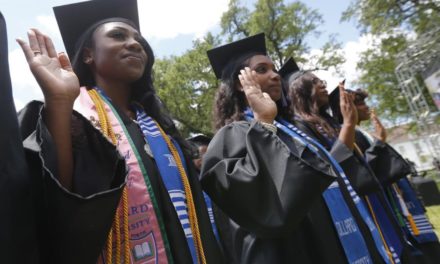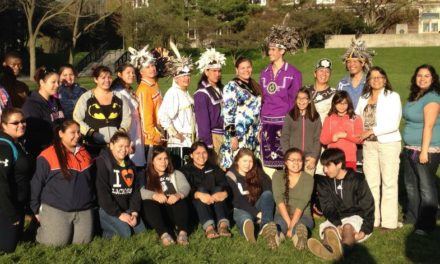
A DIVERSITY RECRUITMENT PARTNER
University of TexasAustin, TX
As a graduate student in the College of Education, you will learn skills and theories that lead to positive change in education, policy, and public health. Our research-driven programs allow you to work alongside expert faculty, tackling issues that have a direct effect on the lives and education of children and communities.
Our Mission
The College of Education at the University of Texas at Austin is committed to a culture of social justice, equity, diversity, and inclusion in which students, faculty, staff, and visitors engage in an environment that is welcoming and respectful of all people. The Social Justice, Equity, Diversity, and Inclusion committee serves as a steward of this facet of the college’s mission.
Quick Info
Why Us?
Our college is ranked 10th overall by the U.S. News and World Report. Across our departments, we value teaching, community, high-impact research, and rigorous academics that make our college one of the best in the country.
Social Justice and Equity
The College of Education is committed to a culture of equity, inclusion, social justice, and diversity in which students, faculty, and staff engage in an environment that is welcoming and respectful of all people. We embrace these tenets as evidenced in our research, curricula, and service to the community as we prepare our graduates to succeed in a diverse world.
Division of Diversity & Community Engagement
The Division of Diversity and Community Engagement is a national model for integrating diversity and community engagement into the core mission of a university. It works with a broad range of student, faculty, staff, and community constituents to help The University of Texas at Austin connect its intellectual resources to communities across Texas and offer education to those who may face the greatest challenges in accessing it. The Division focuses on four core pillars: campus culture, community engagement, education pipeline, and research.
K-12 Initiatives
The growing number of children from underrepresented groups who are entering the Texas educational pipeline deserve both the opportunity to enroll in college and the chance to thrive there. To this end, the DDCE is committed to increasing the success of students from PreK through 12th grade. The DDCE’s pre-college initiatives reach communities statewide to foster a culture of academic success for students from first generation or low income families or who attend high schools that are underrepresented in higher education.
Some initiatives offer incentives and support for academic success, while others provide dual high school and college credit, tutoring, mentoring, and interactive conversations with families about what it takes for students to be ready for college.
Our Programs
The Department of Educational Leadership and Policy has a legacy of excellence in training scholars, practitioners, and educational leaders for PK-12 public schools, higher education, and the P-16 policy arena. We prepare a diverse cadre of change-makers who go on to serve as superintendents, school principals, professors, researchers, and student affairs professionals. Our award-winning faculty, nationally recognized graduate programs, and highly regarded research centers focus on educational leadership and policy through equity and social justice lens.
The M.Ed. in Higher Education Leadership develops the knowledge and skills necessary for students to become professional administrators at the college or university level. Students are prepared for careers in areas such as student housing, leadership development, fundraising and development, financial aid, admissions, health education, and similar programs in higher education institutions. This program starts in the fall semester.
The PHEL Ph.D. program prepares students in the scholarly study of higher education. Through research across departments within the university, students gain first-hand experience into effective applications, policies, and leadership skills used in academia by faculty and staff. Students also learn how universities function as advocates for social justice and support increasingly diverse student populations. This program starts in the fall semester.
Our Diversity
We believe that diversity is inextricably linked to excellence. We believe that embracing diversity and social justice—in our faculty, staff, students, research, curricula, and service to the community — creates a rich atmosphere for teaching, learning, and inquiry and is a necessary condition for preparing our graduates to succeed in a diverse world and to change it for the better. We recognize a history of oppression, inequity, and structural discrimination in the university, local, state, and national context. We leverage diversity and interdisciplinarity as critical components in our innovative research, inclusive and empowering curricula, and professional leadership.
Virtual Tour of University of Texas — Austin
Our Dean
Concurrent with a strong foundation, we are in a transformational time in public higher education in general—one that demands more interdisciplinary collaboration, more institutional nimbleness, stronger external partnerships, and more attention to the core mission to improve access among underrepresented populations of students.
The College of Education is in a unique position to answer this call to action.
Get In Touch
University of Texas – Austin
College of Education
1912 Speedway, Stop D5000
Austin, Texas 78712
Telephone: (512) 471-3223
Hours: M-F: 8am – 5pm
Non-Discrimination Policy
The University of Texas at Austin is committed to an educational and working environment that provides equal opportunity to all members of the University community. In accordance with federal and state law, the University prohibits unlawful discrimination, including harassment, on the basis of race, color, religion, national origin, gender, including sexual harassment, age, disability, citizenship, and veteran status. Discrimination on the basis of sexual orientation, gender identity, or gender expression is also prohibited pursuant to University policy.







